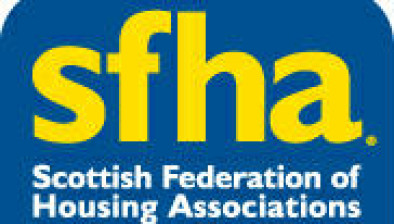Tenants at the heart of the organisation, Ilene Campbell tells SFHA conference

Ilene Campbell
Tenants Information Service (TIS) chief executive Ilene Campbell attended the Scottish Federation of Housing Associations (SFHA) Housing Management Conference yesterday to deliver an impactful closing plenary session.
Hosted in central Glasgow, the SFHA conference gathered frontline housing professionals to promote best practice around all things housing management. Ilene focused her presentation on the foundations of TIS, as experts in housing, community development, and engagement practice – and urged landlords across the Scottish social housing landscape to creatively harness tenant feedback and consultation, to change housing and communities for the better.
Scotland has a unique legal framework for tenant participation and considering the impact of the current financial crisis and other socio-economic inequalities that surround the sector, there has never been a more important time for tenants to be at the heart.
In her presentation, Ilene welcomed the emphasis, in the updated Scottish Housing Regulator (SHR) Regulatory Framework, on landlords listening and taking critical steps to empower tenants, people who are homeless, and service users. Ilene highlighted to the audience, the importance for tenants to be heard, have access to information and support, and to be provided with meaningful opportunities to shape the services they receive and influence decisions that affect them.
Tenant-led scrutiny is leading the way across Scotland for tenants to independently review the delivery of housing services, and there are many positive examples of successful partnership working showcased across the sector, notably within the TIS membership community, including: Barrhead Housing Association, Cunninghame Housing Association, East Renfrewshire Council, and Lanarkshire Housing Association. TIS is committed to reinforcing that it is vital the sector continues to involve tenants to improve quality of housing, including affordability, future investment priorities, and energy efficiency.
Customer satisfaction surveys are a valuable resource and provide landlords with extensive data focused on tenant views and priorities.
Ilene addressed the audience and asked the group to consider: “Are we making the most of the information we have?” and “Do we take the opportunity to learn from the things that work well and don’t work well?”. Involving tenants at the design stage of survey work can inform action plans that meet the aspirations of tenants.
It is widely known that there are many demographics across Scotland that are under-represented in tenant participation, engagement, and scrutiny practices. For example, young tenants, aged 16-34, make up around 23% of tenants who live in social housing, and establishing meaningful opportunities to increase youth engagement in housing and wider community services remains an ongoing challenge.
The Scottish Government recently commissioned TIS to produce a study focused on gaining a better understanding of the baseline and barriers that affect the success of youth engagement. Available soon, the study strongly encourages landlords to provide meaningful opportunities for young tenants to play an active role in shaping their communities and to effect positive change for the future of social housing.
In addition, TIS and Scotland’s Housing Network (SHN) Climate Change and Your Home research, to better understand tenant views towards social housing and the climate change
emergency in Scotland, laid out the need for improved communication and for tenants to be pivotal in decisions around decarbonisation plans; to have a full understanding of the impacts of such restrictions in order to dispel any rumours, fears, or worries, and to promote equality within our tenant participation strategies.
Ilene brought the plenary session to a close, reiterating, that it is more important than ever before, in the face of one of the worst financial times for many tenants, that communities and landlords come together, to drive forward as a collective, to change housing in Scotland for the better.








